Moto G9 Play
Two-minute review
The Moto G9 Play is a cheap Android phone. It is fairly hard to beat if you completely ignore Chinese brands like Realme and Xiaomi, which are relatively new to western countries.
You get a big screen, a good amount of storage, solid general performance and a camera that can produce nice images in some situations.
Jump to...
A couple of little extras push the Moto G9 Play up from an acceptable Android phone to a rather good one. It has a clever night camera mode and a louder-than-average speaker.
Sure, other Moto G-series phones have stereo speakers rather than the mono one used here, but the Moto G9 Play’s really isn’t miles behind something four times the price in terms of volume and mid-range chunkiness.
As for the aforementioned night mode, it's Motorola’s low-light Night Vision camera mode, which is normally only available in the slightly higher-end Moto phones. This significantly improves night photos, even if it doesn’t really elevate performance elsewhere beyond that of an entry-level camera.
This phone is miles better than the Nokia 3.4 we reviewed recently, bringing up the performance to a level we’re happy with. And you get more for your cash here than from a Samsung Galaxy A21s.
The competition heats up if you look further afield, to the Xiaomi Redmi Note 9. That offers comparable hardware in most respects, but has a Full HD+ screen rather than a 720p one.
We didn’t leave the Moto G9 Power wishing it had more pixels, but Full HD+ displays always look better.
Moto G9 Play price and availability
- Out now in the UK and Australia
- Unlikely to come to the US
- Costs £159.99 / AU$299 (roughly $210)
The Moto G9 Play is out now in the UK and Australia, where it costs £159.99 / AU$299 (roughly $220). That makes it the cheapest of the G9 range so far, slotting in just below the Moto G9 Power.
The situation in the US for this phone is a little complicated. The company unveiled its Moto G Play at CES 2021, and it seems similar to the Moto G9 Play but it isn't exactly the same.
That handset features lower spec than the Moto G9 Play, but costs $169 (around £124 / AU$217). We aim to do a separate review of the Moto G Play for those in the US soon.
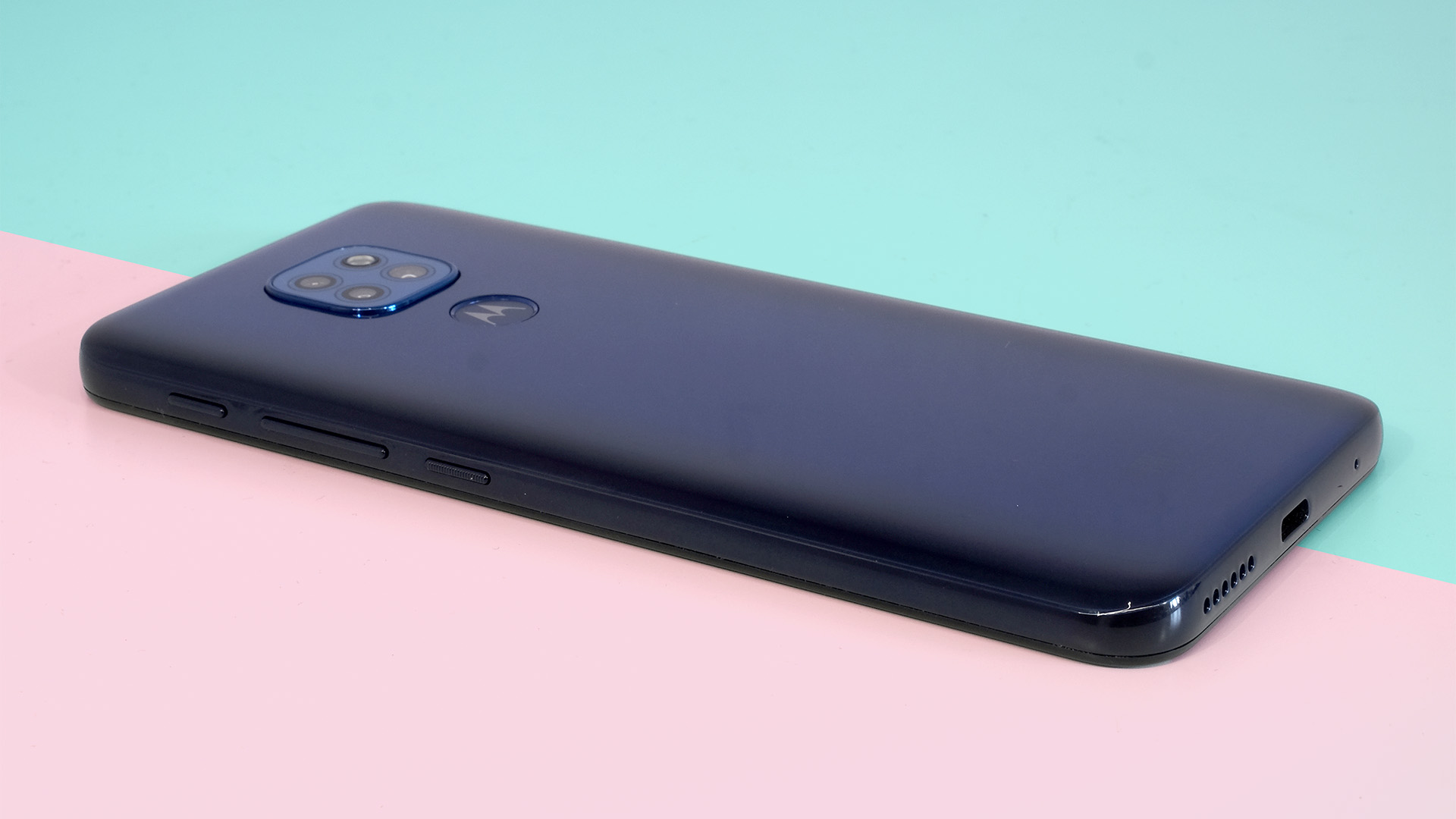
Design
- Plastic back and sides
- Looks a lot more expensive than it is from a distance
The Moto G9 Play is about as cheap as you can go when buying a phone that still looks like it might cost $400/£300 or more. From a distance, anyway.
It has big screen, a smart-looking teardrop notch, and a design that emulates the curved rear glass and aluminum sides used in many pricier mobiles. However, the back and sides are plastic. Even the side buttons are plastic.
The screen and camera housing covers are glass, but that’s your lot.
Want glass or metal? The Xiaomi Redmi Note 9 Pro and OnePlus Nord are some of the best affordable phones with glass backs. But they cost significantly more. The Moto G9 Play feels exactly as we’d expect it to at the price, but there are few major complaints when judged in the right context.
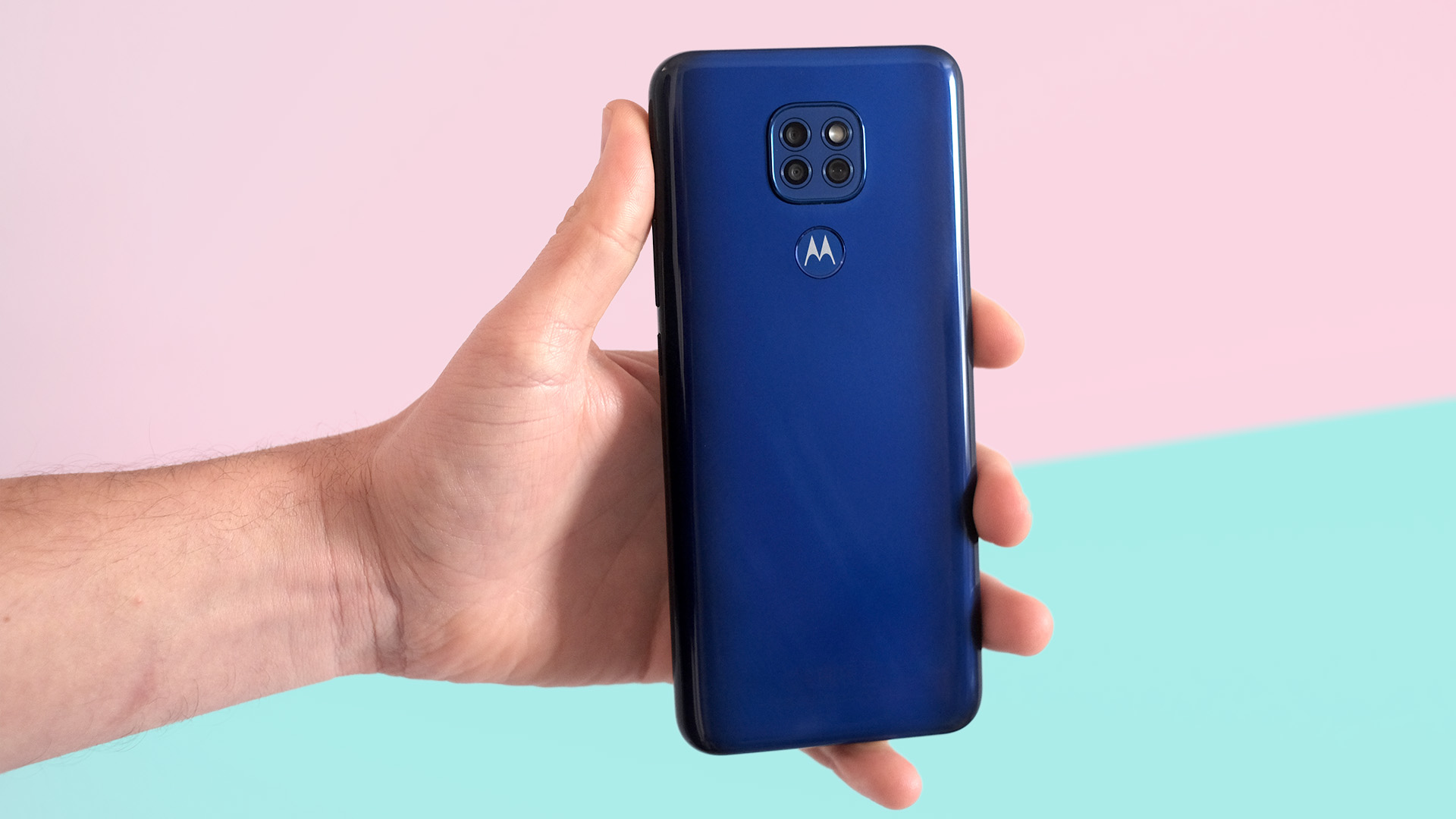
This phone has a handy headphone jack, USB-C charging, and a solid rear fingerprint scanner. It takes around half a second to unlock the Moto G9 Play. That is slightly slower than some, but it is only something we noticed when analyzing the phone actively, rather than interacting with it like a regular user.
Motorola also uses a square arrangement for the phone's rear cameras, like an iPhone 12 Pro. The Moto G9 Play does not look as refined - no surprise there - but it’s another element that might trick an onlooker into thinking the phone costs more.
The Moto G9 Play also has a water repellent ‘nano’ coating under its rear shell. This doesn’t mean you should start dunking the phone in water, but it does mean it is better prepared for the elements than a lot of cheap phones.
Display
- 6.5-inch 720 x 1600 screen
- Good quality, but you can get sharper displays for similar money
The Moto G9 Play has a 6.5-inch 720 x 1600 LCD screen. It has no particular high-end traits, but good, cheap displays like this now get you close enough to the experience of a much more expensive mobile.
Color is good, just not ultra-saturated even if you use the ‘saturated’ color profile. The Moto G9 Play does not support HDR video but - whisper it - HDR is a bit pointless in phones anyway.
There’s no radical change in the screen image at extreme angles, bar some brightness loss, which is the sign of a solid display panel. And we measured peak brightness of exactly 400cd/m using a SpyderX colorimeter.
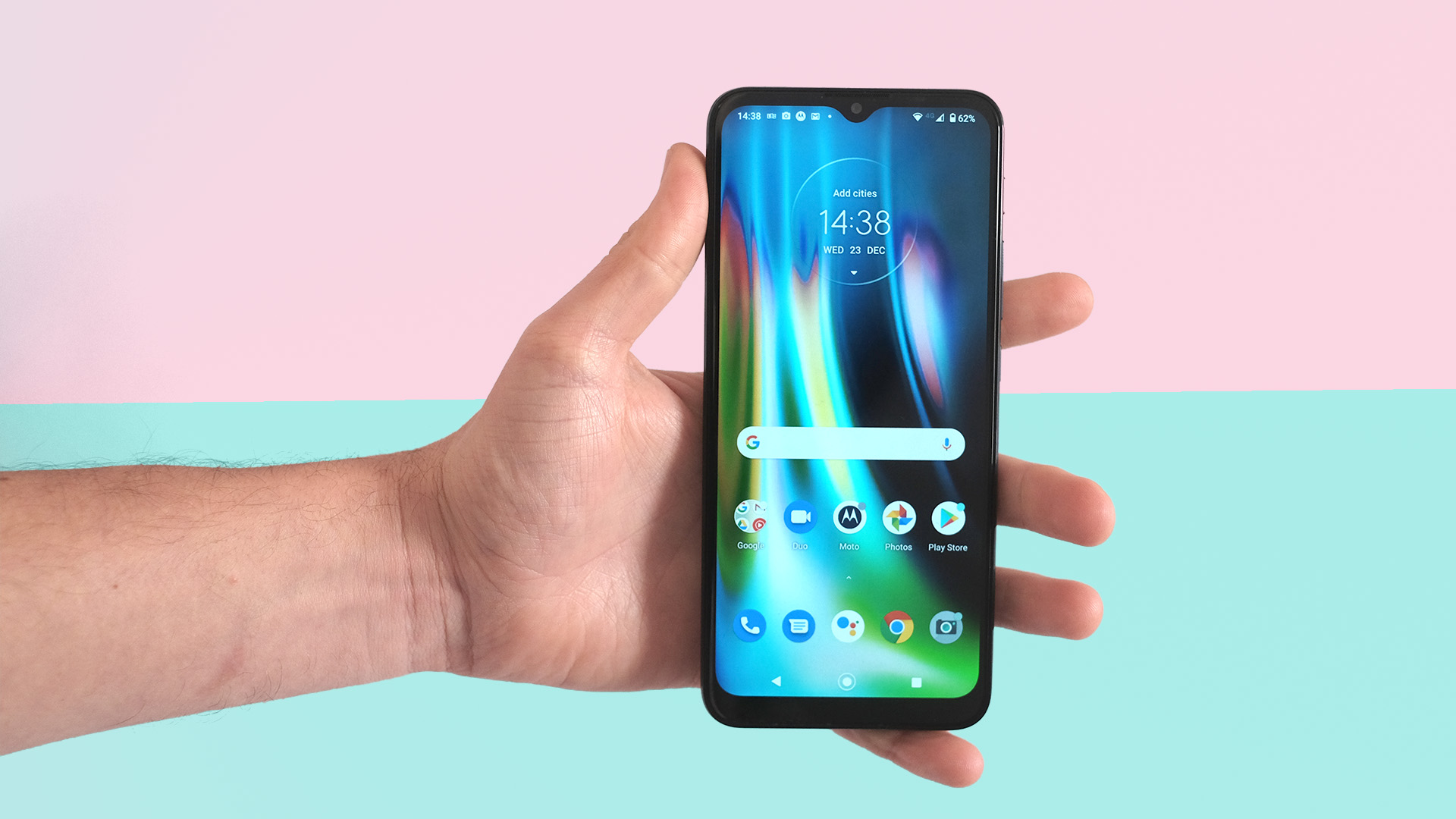
This is only around a third of the brightness of a phone like the Samsung Galaxy Note 20 Ultra, but it is still enough to make the phone reasonably clear outdoors. We only wished there was a little more on tap when out shooting photos in bright conditions.
The Moto G9 Play has a perfectly solid screen. However, we are now quite accustomed to 90Hz and 120Hz screens, and the switch down to a 60Hz one with clearly sub-OLED pixel response times did take a day or two to bed into.
But now, more than a week later? We don’t really notice the slightly old-school handling of fast-scrolling menus. Given the Moto G9 Play’s price we’re happy with the phone’s screen quality.
Its large size is also a big benefit for almost all games and apps. Can you do better for the same cost? Yes. Xiaomi sells several phones for similar money with higher resolution displays. The Xiaomi Redmi 9 and Redmi Note 9 have 1080p screens, as does the Realme 6.
That higher pixel density makes text look sharper.
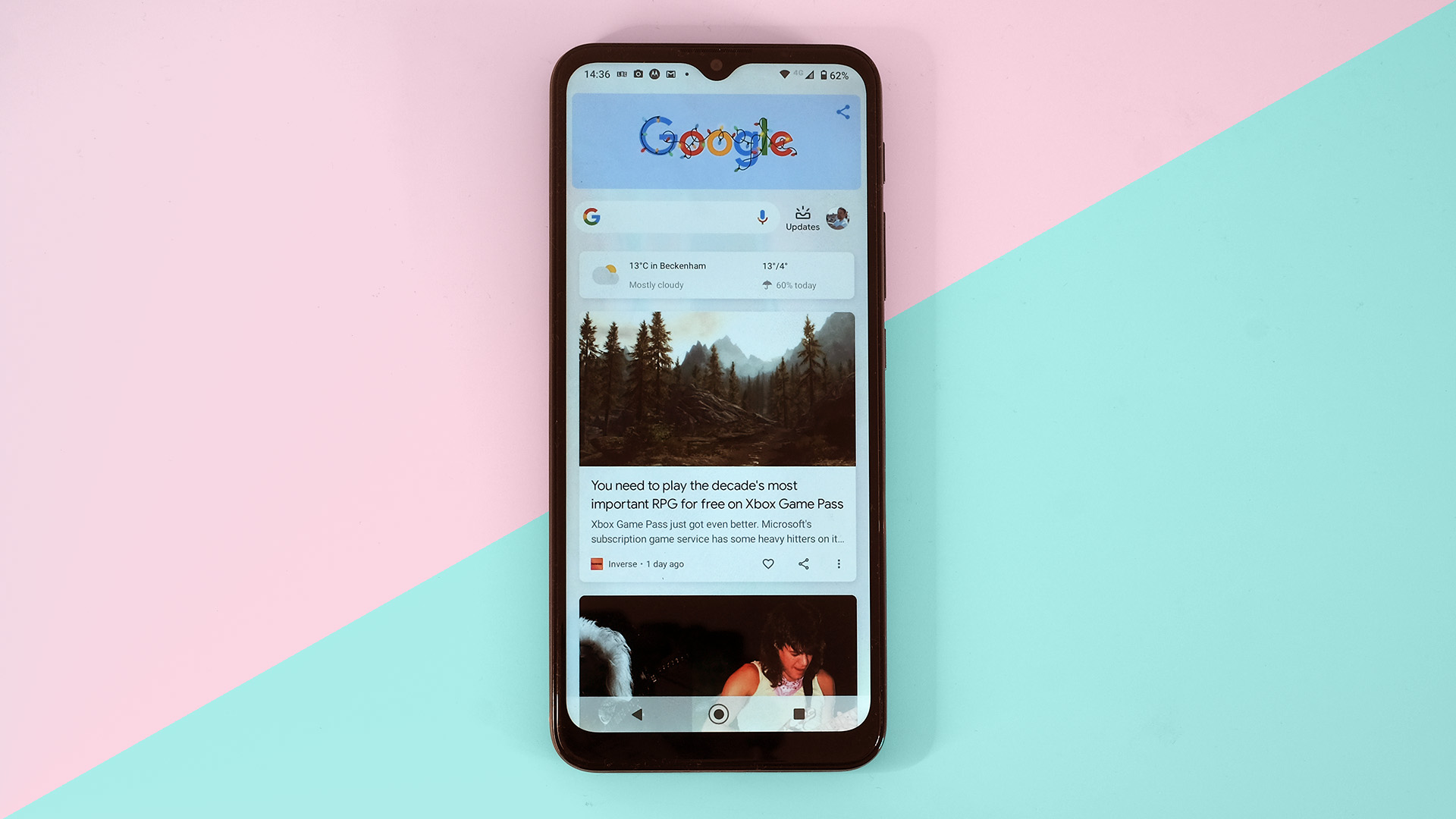
Camera
- Triple-lens camera but only one field of view
- Useful night mode
The Moto G9 Play has three rear cameras but this feels like a single-camera phone because you only get one field of view. There’s no zoom, no ultra-wide.
Its two supplementary cameras are a 2MP macro and a 2MP depth aid for the Portrait mode. As usual, the low-res macro is barely worth using. And the depth aid is so basic it cannot handle challenging scenes, resulting in weird patterns of blurred and non-blurred areas if your subject is complicated or too far away.
However, while these two additional cameras are arguably filler, we are glad the depth aid is here. It lets the Moto G9 Play shoot blurred-background images of any subject, not just people (where the depth calculation can be performed using face and object recognition). Some phones use clever techniques to allow this without a depth camera, but cheaper ones usually do not.
The Portrait mode can produce striking images, in the right situation.
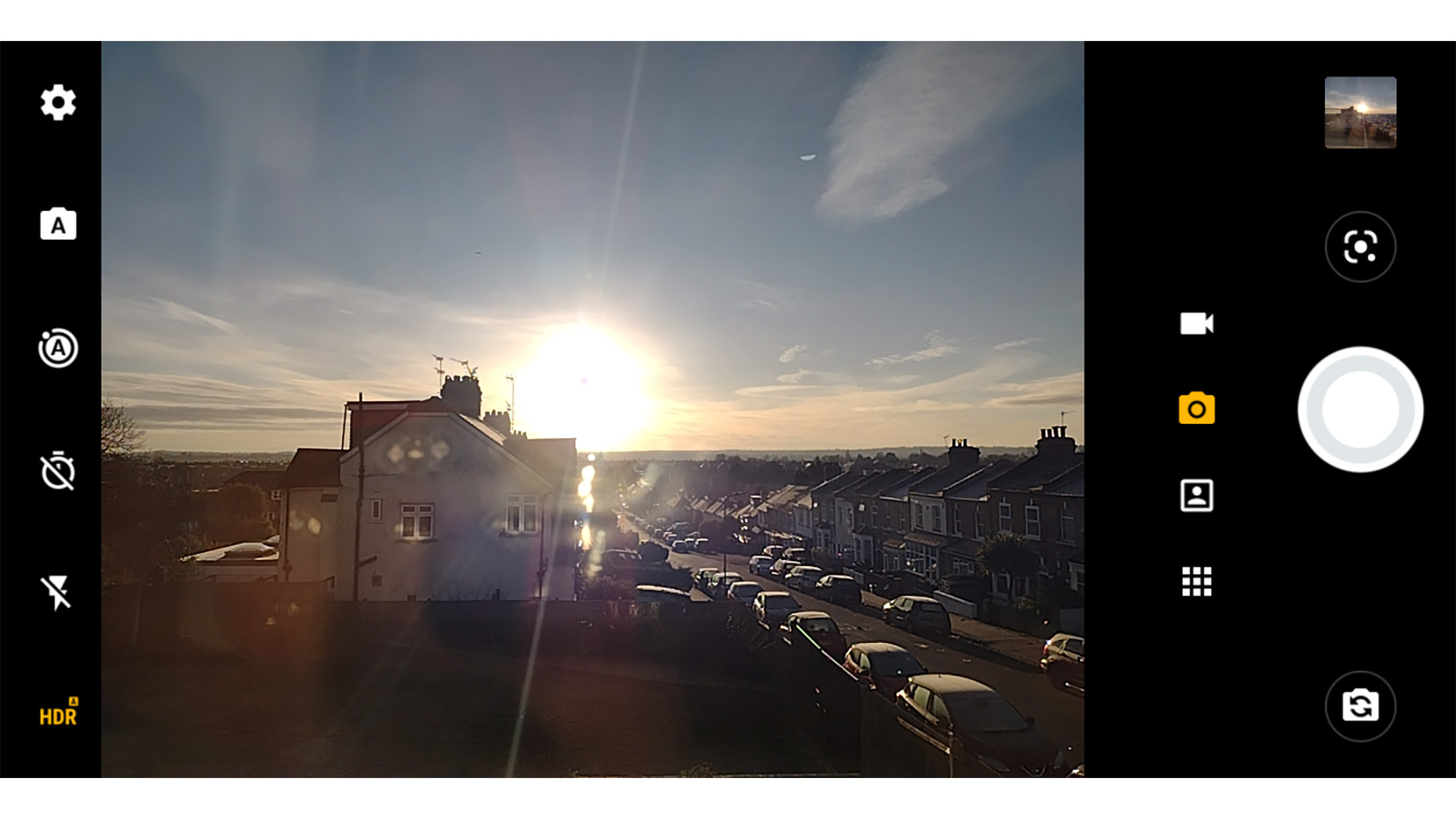
For the stat nerds out there, the Moto G9 Play’s bonus cameras use f/2.4 OmniVision OV02B sensors. And the main one is a 48MP f/1.7 Samsung GM1, used in a great many cheap phones including the Xiaomi Redmi Note 9 and TCL 10L.
This is not a brilliant sensor. It offers poorer detail and dynamic range than the rival Sony IMX586, used in a bunch of higher-end phones.
Attributes present here typical of phones at the price include that photos taken in indoor lighting look soft and desaturated, and right down at pixel level images tend to look either noisy or processed. However, given the price, the Moto G9 Play performs admirably enough.
In most situations it makes ample use of HDR to lift the shadows while retaining highlight detail. And while a lot of our photos have a slight purple/red skew, the Moto G9 Play’s color is reasonably lifelike when shooting in daylight.
There’s even a pleasant surprise for night shooting. Typically, lower-end phones in the Moto G series do not have Motorola’s Night Vision shooting mode, but the Moto G9 Play does.
This is a standard modern night shooting feature that takes a few seconds in order to merge multiple shots and improve the brightness, clarity, and detail of images. It has a real effect here.
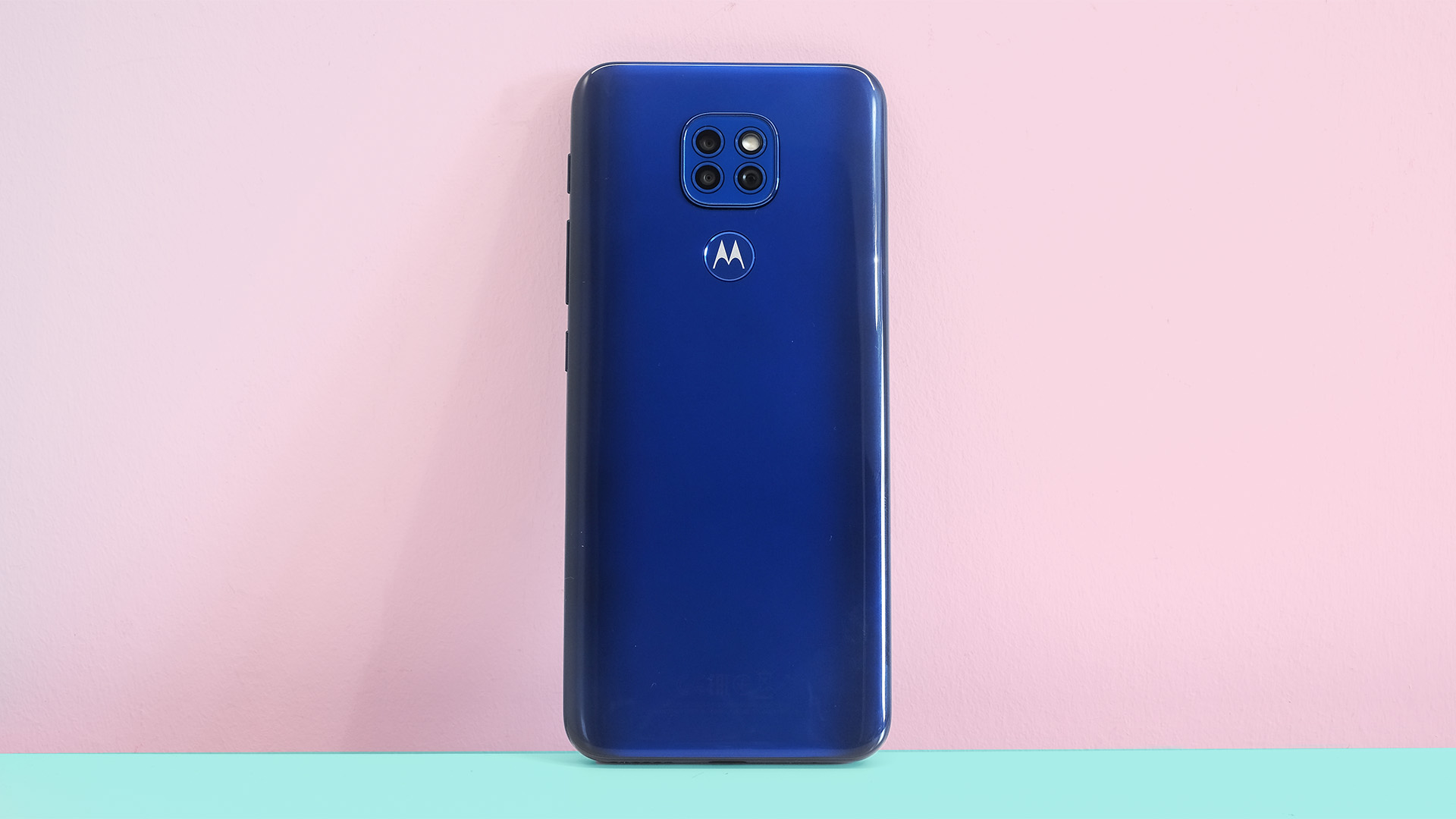
Entry-level phones that attempt this usually only make images a bit brighter, if that, but the Moto G9 Play also manages to improve detail and image texture over standard Auto shots.
Sure, the Moto G9 Play’s night images aren’t going to worry those of a solid mid-range phone. But this is a sign that the trickle down of this important feature, once only available in a handful of ultra-expensive mobiles, has happened.
We recommend using Night Vision for any indoor shots of non-moving subjects, as it more or less fixes the dull and dingy appearance you’d otherwise get.
The Moto G9 Play has an entry-level camera overall then, but with a little know-how you can tease some pleasant photos from it.
Video is severely restricted, though. You can only shoot at up to 1080p resolution, 60 frames per second. And we recommend using 1080p, 30fps most of the time, as it’s the best quality mode on offer that also allows for electronic image stabilization (EIS). Footage looks jerky and ugly without EIS.
The front camera has an 8MP f/2.2 sensor that seems to smear fine detail in anything less than good lighting. But we think it’s a perfectly acceptable selfie camera at this level. The Moto G9 Play also has a Portrait mode for selfies, which is a lovely touch.
This blurs out the background, performing a mind trick that makes your face seem all the sharper.
Camera samples
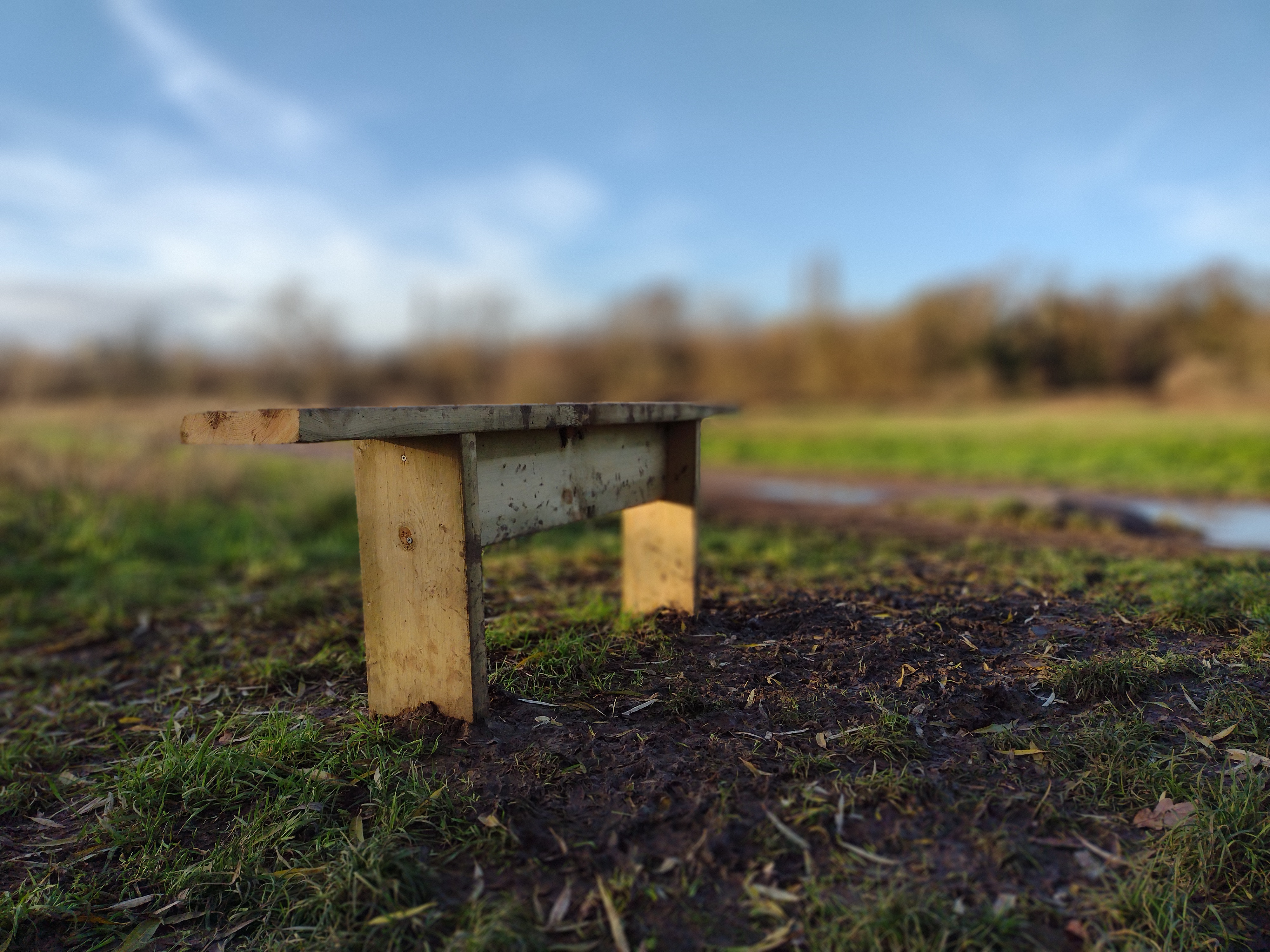




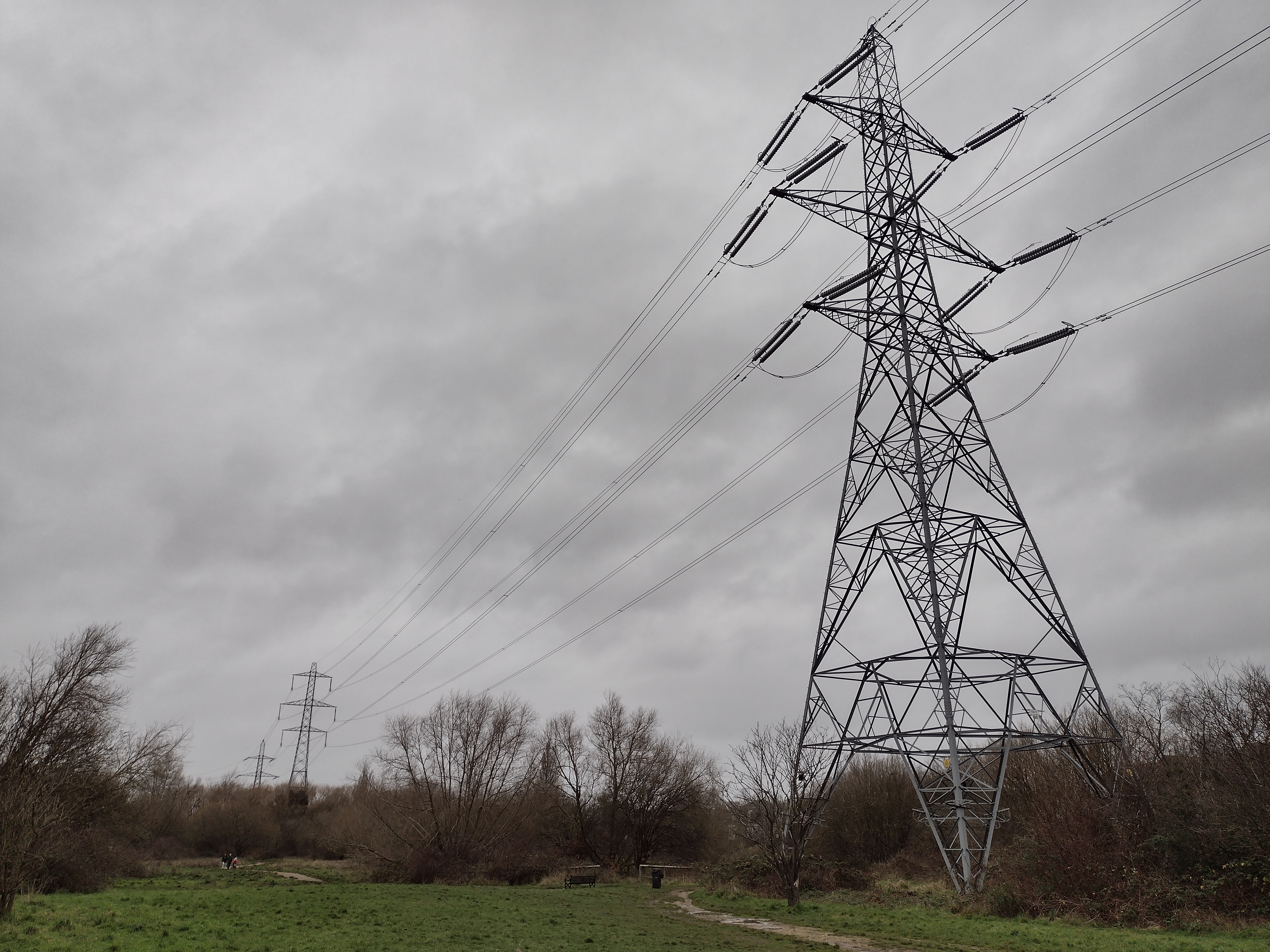
Specs and performance
- Snapdragon 662 chipset and 4GB of RAM
- Solid gaming performance for the money
The Moto G9 Play uses the Qualcomm Snapdragon 662 chipset with 4GB of RAM and 64GB of storage. That’s a good amount of storage, enough RAM to keep the Android 10 software happy, and a solid entry-level CPU.
In daily use we noticed apps take slightly longer to load than in a $400/£300-plus phone, and there’s an occasional fractional pause when you skip to different parts of the interface. But there is almost none of the kind of lag that makes it feel as though you have to wait for a phone to catch up with you. That’s the bad stuff we look to avoid.
The result? The Moto G9 Play is perfectly pleasant to use, and we were not in a rush to switch to a different phone when the review period came to an end. For a handset this affordable, that is a solid endorsement.
It scores 1,376 in Geekbench 5, far better than the ~900 you’d see from the Moto G8 Play. This phone uses the same processor as the step-up Moto G9 Power.
Gaming is no problem either. Fortnite runs at an acceptable 20-30fps, only usually dropping below 20fps when falling from the dropship or taking to the skies in the plane. PUBG runs well at ‘balanced’ graphics, and you can’t use the higher-end modes anyway.
Asphalt 9’s frame rate is inconsistent, which it is on most affordable phones, and it doesn’t look as pretty as it might on a higher-end mobile, but it’s still fun.
The Moto G9 Play is a solid gaming phone. But for no-compromise style play, consider upgrading to one with a Snapdragon 7-series processor. The Realme X50 5G is one of the cheapest, and best. It has a better GPU, a sharper screen, and 5G.
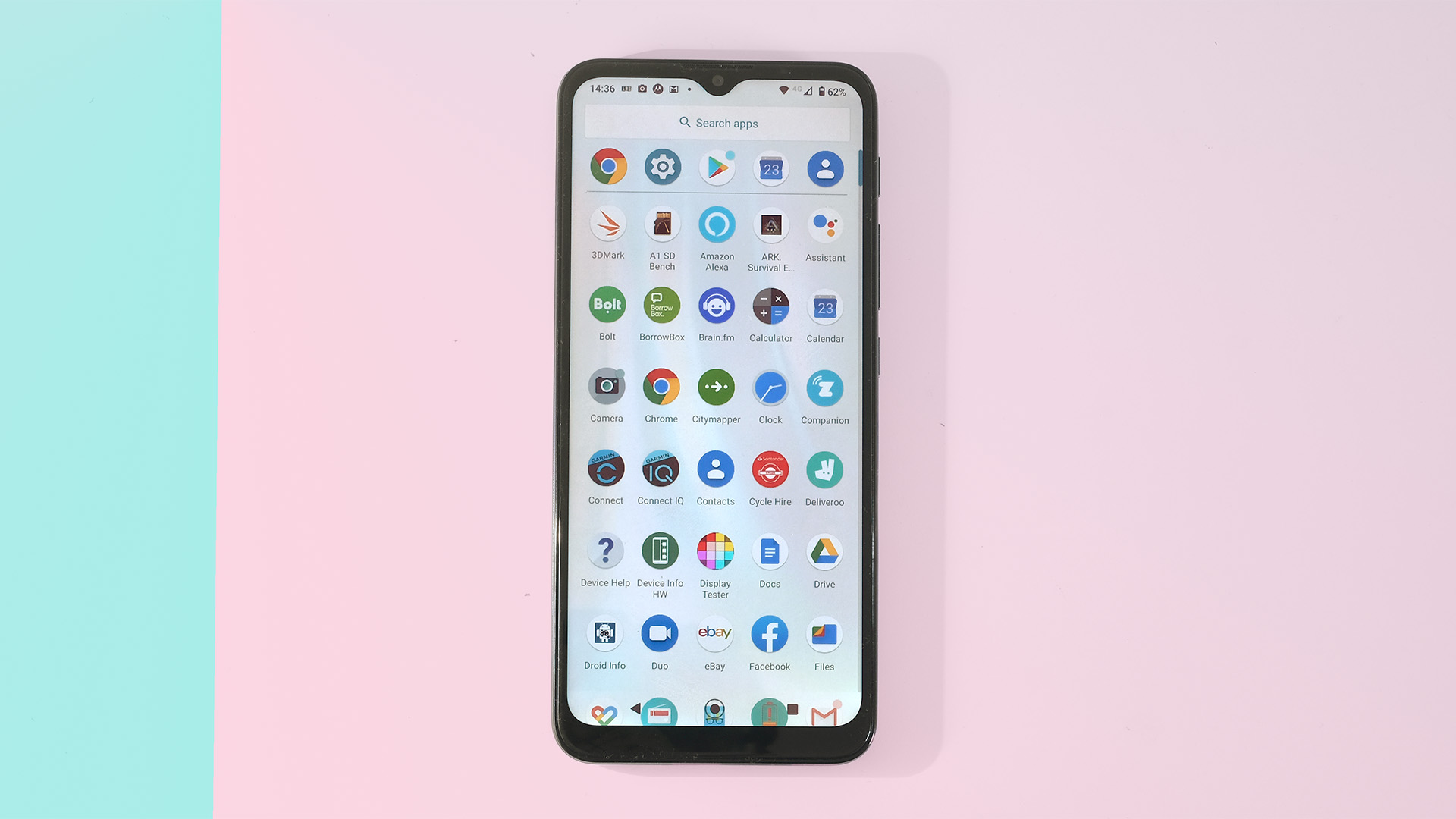
The G9 Play's software is exactly what we expect from a Moto phone. It’s not stock Android, but is so clean and simple you could mistake it for such.
Motorola adds some shortcut gestures, but Peek is perhaps its most useful addition. This is a display that pops up when the Moto G9 Play is sitting idle, say on a table, and you ‘bump’ it to set off the motion sensors.
Peek shows you the time and icons representing notifications, to let you know if there’s anything you need to take a closer look at.
Battery life
- 5,000mAh battery comfortably lasts beyond a day
- 20W fast charging
The Moto G9 Play has a 5,000mAh battery that outlasts plenty of top-end phones with similar capacity according to our testing. On lighter days we are left with over 40% charge by bedtime. We have never needed to give the phone a top-up to make sure it lasts the day.
This is a battery you don’t have to worry about, a perfect fit for the Moto G9 Play's audience.
It lasts long enough that we don’t feel the need to direct too many of you to the phone Motorola makes for truly demanding daily use. This is the Moto G9 Power, which has a 6,000mAh battery. Its screen is larger too, a giant 6.8-inch panel, but it should last even longer with general use.
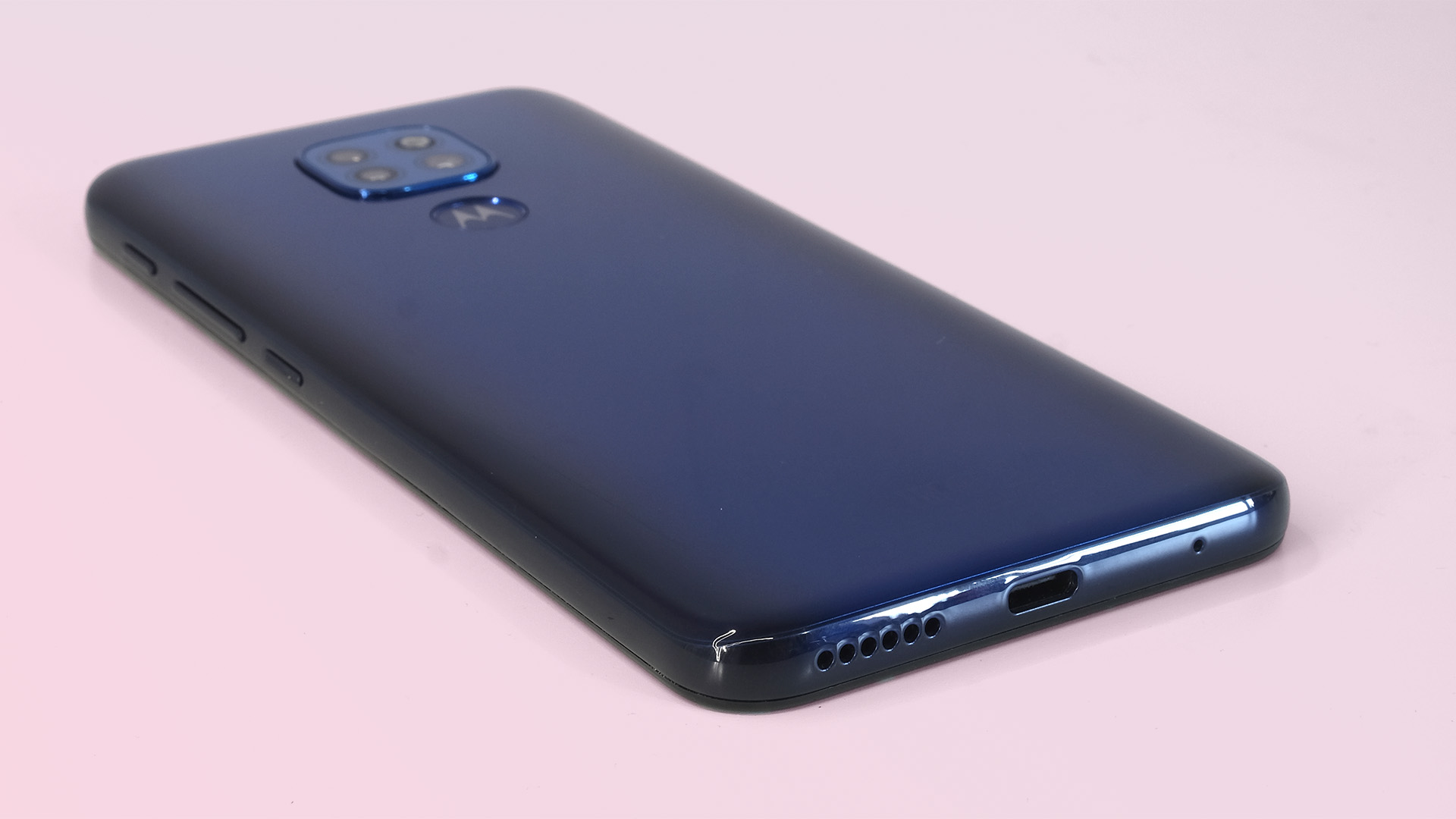
We think some of you will prefer the Moto G9 Play. At 221g, 9.7mm thick and 76.8mm wide, the Power is a whopper. The Play weighs 21g less.
Charging speed is solid too, for a cheap mobile. The Moto G9 Play comes with a 20W charger and we measured maximum draw of 18.8W using a power meter. This means you get solid quick top-ups without buying an additional charger. There's no wireless charging, but that's unsurprising given the price.
Should I buy the Moto G9 Play?
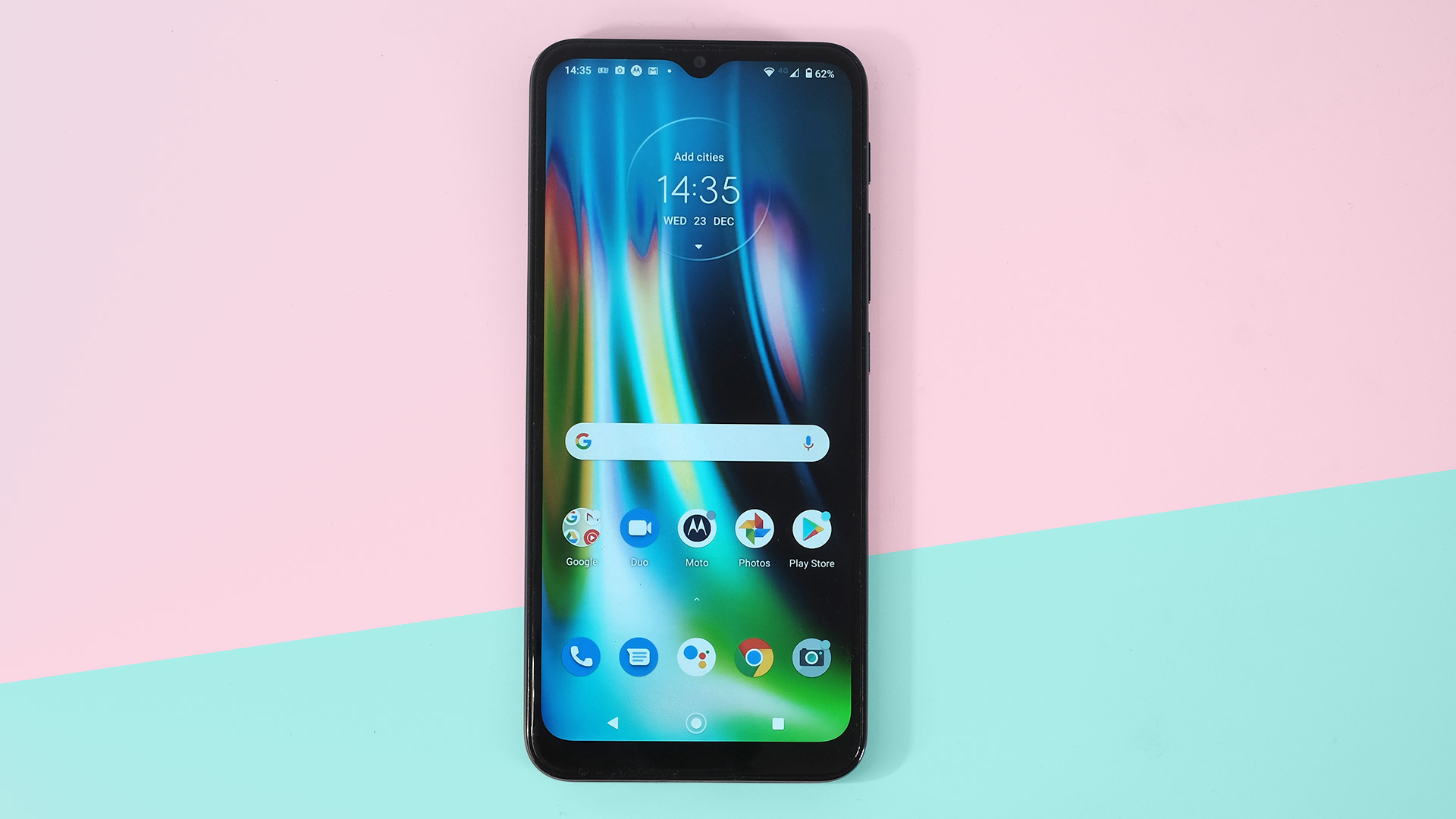
Buy it if...
You want an affordable phone
The Moto G9 Play is a solid affordable phone. You don’t have to pay too much for one, and that is entirely the point. There are little compromises everywhere, but the price is low enough to turn down the volume of them all, for the most part.
You need a long-lasting battery
You don’t need to worry about the Moto G9 Play running out of battery every day. Sure, Motorola makes a Moto G9 phone with an even larger battery, the Moto G9 Power, but that phone is larger all-round and less easy on the hand and pocket as a result. This is a classic low-maintenance mobile. It’ll last two days for light users, and a reliable full day for all but the heaviest.
You want quality sound
Unusual ‘pro’ for a budget phone: the Moto G9 Play has a surprisingly decent little speaker. Sure, there’s only one driver, so the audio is mono and the sound field isn’t perfect for games. But the respectable max volume and general sound quality are meaningful benefits if you listen to podcasts or stream radio using your phone’s own speaker.
Don't buy it if...
You want a sharp screen
The Moto G9 Play ‘only’ has a 720p screen. While we don’t think this is a huge issue given the low cost, it does reduce screen pop and clarity slightly, and makes some games use different graphics profiles that don’t look as good. At a very similar cost, Xiaomi’s Redmi Note 9 and the Realme 6 offer 1080p screens.
You need 5G
This is not a 5G phone. That may sound obvious to some of you, but the price floor for 5G has sunk rapidly in the last six months and we are not too far off this ‘next gen’ mobile internet becoming the norm even in budget Androids.
You want a top camera
Don’t expect miracles from the rear camera. It’s made up to look like a high-end array but there’s only one half-good camera on the back. The others are 2MP junk sensors: not completely useless, but not that far off either. You can’t shoot 4K video with the camera either.
First reviewed: January 2020
0 comments:
Post a Comment